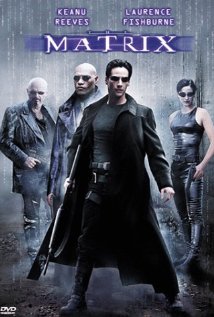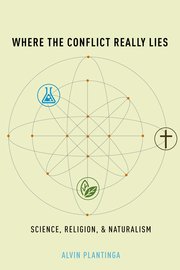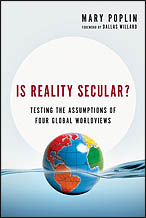
What is real? . . . If you’re talking about what you can feel, what you can smell, what you can taste and see, then real is simply electrical signals interpreted by your brain (43)
Material Naturalism
With the above quote from The Matrix (1999), Mary Poplin introduces Part 2 of Is Reality Secular? What is the nature of reality? (Post on part 1). Morpheus’ words and the exploration of Material Naturalism bring back memories not only of a decade of conversation at Carnegie Mellon University as an InterVarsity Campus Field Staff (1996 – 2006), but also nearly a lifetime of my own internal wrestling. So how does Mary Poplin engage:
- Everything is a Thing (Chapter 5)
- Science as the Only Truth (Chapter 6)
- The Purposeless Universe Emerged from Nothing (Chapter 7)
- No Miracles Allowed (Chapter 8)
- The Ethics of Things upon Things (Chapter 9)?
I particularly appreciate the insights she offers from the dialogue between Alvin Plantinga and Tom Nagel. Below is her conclusion to Chapter 5: Everything is a Thing.

Atheist Tom Nagel convincingly challenges the problems of material-naturalism in his book Mind and Cosmos. In his review of Plantinga’s book [Where the Conflict Really Lies: Science, Religion, and Naturalism (Oxford University Press, 2011)], Nagel writes that while he cannot imagine believing in God,
Plantinga’s criticism of naturalism are directed at the deepest problem with that view — how it can account for the appearance, through the operation of the laws of physical and chemistry, of conscious beings like ourselves, capable of discovering those laws and understanding the universe that they govern. Defenders of naturalism have not ignored this problem, but I believe that so far, even with the aid of evolutionary theory, they have not proposed a credible solution.[43]
Material naturalists and Christians agree that there is a physical material reality independent of our minds. That we can know and should learn as much as we can about physical material phenomena by applying the scientific method is equally agreed upon. There are no irreconcilable difference between good science and the Judeo-Christian worldview from which it flourished. There are only difference between scientists and philosophers of science, some who are strict material naturalists and others who are not (55).

Questions:
- Is reality secular?
- Is it true?
- How do you “account for the appearance, through the operation of the laws of physical and chemistry, of conscious beings like ourselves, capable of discovering those laws and understanding the universe that they govern”?
What’s next?
- Post on Part 3: Secular Humanism on hold. Why? Mary Poplin will be writing a series for us on her book (9/5/2014: click here).
- An offer for Emerging Scholars . . .
- As you’ll note from this and earlier posts, I’m finding Is Reality Secular? a lively resource bank for personal reflection and conversation. If you are likewise interested and desire a copy to stimulate campus conversation in 2014, please drop me a one paragraph proposal as to how you desire to use a copy on your campus. The first five Emerging Scholars Network members, who are academics (e.g., students, postdocs, faculty, campus administrators, researchers in higher ed), to email me with a “viable” proposal in partnership with a campus ministry (e.g., book study, discussion table/booth, presentation, symposium) will receive a gift copy of Is Reality Secular? to help them get started 🙂
Tom enjoys daily conversations regarding living out the Biblical Story with his wife Theresa and their four girls, around the block, at Elizabethtown Brethren in Christ Church (where he teaches adult electives and co-leads a small group), among healthcare professionals as the Northeast Regional Director for the Christian Medical & Dental Associations (CMDA), and in higher ed as a volunteer with the Emerging Scholars Network (ESN). For a number of years, the Christian Medical Society / CMDA at Penn State College of Medicine was the hub of his ministry with CMDA. Note: Tom served with InterVarsity Christian Fellowship / USA for 20+ years, including 6+ years as the Associate Director of ESN. He has written for the ESN blog from its launch in August 2008. He has studied Biology (B.S.), Higher Education (M.A.), Spiritual Direction (Certificate), Spiritual Formation (M.A.R.), Ministry to Emerging Generations (D.Min.). To God be the glory!

I have not read the book, so this is a blind comment. I think that we are seeing what happens when we do not properly have a proper understanding of metaphysics to undergird our physics. The idea that the essence of the thing is the physical characteristics is really just the Enlightenment come home to roost. But the problem is – we can’t actually explain ourselves, or at least ourselves as we like to think about ourselves in these terms as evidenced by the quote regarding Plantinga’s book. As much as we think about Aristotelian metaphysics as being outdated, perhaps Aristotle was more right than we want to give him credit for. The essence of a thing is ultimately immaterial and unknowable through science and our modern scientific method. The battle is not between Christianity and science, but between physics and metaphysics. Much of modern science has denied that there is such a thing as a metaphysic, so Christianity, which demands a metaphysic appears to be against science. Is reality secular? Is reality physical is really the question in my mind.
If reality is secular, then it was created in the Enlightenment by Europeans and it is REALLY political.